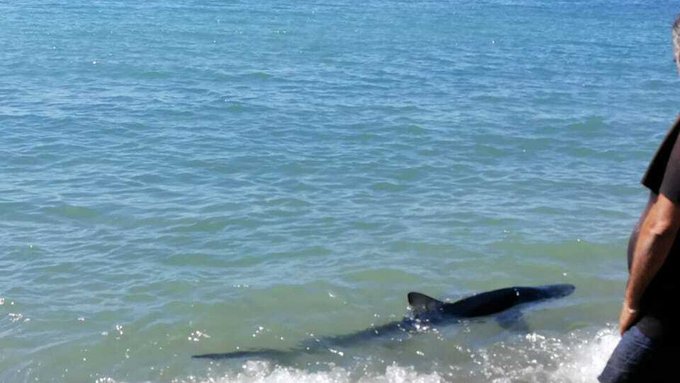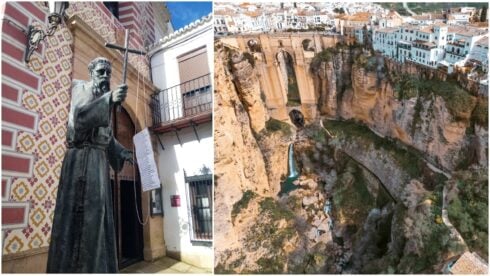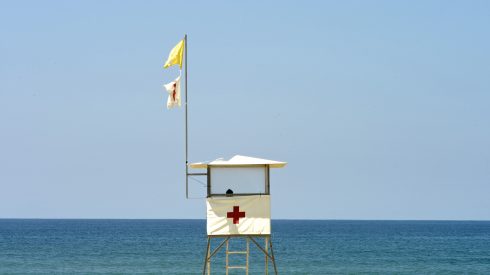A 1.70 METRE beached shark has been rescued off the shore of Malapesquera beach in Benalmadena.
The rescue came at the hands of some bathers and a lifeguard who followed telephone instructions of Paco Pinto, a shark expert from Aula del Mar in Malaga.
The incident took place on Saturday and forced the beach to be closed temporarily as a preventive measure.
It’s believed the shark, a male, was possibly sick.
On sighting the beached shark, the bathers and lifeguard were unsure on how to aid the stranded animal and so phoned the shark expert and were able to follow his instructions.
Pinto explained that in these cases the shark needed to be placed with its belly upwards as this achieves what it known as a ‘tonic immobility.’
Tonic immobility is a natural state of paralysis some animals enter and can be induced causing no apparent stress to the animal.
During tonic immobility, the dorsal fin straightens, and both breathing and muscle contractions become more steady and relaxed.
Some sharks placed in a tonic state may remain in a form of paralysis for an average of 15 minutes before they recover.
Scientists believe that tonic immobility in sharks may be related to mating, because female sharks seem more responsive than males.
On achieving this trance state, the bathers and lifeguard were able to take the shark back into the water.
There, with the sea at waist level, the rescuers were able to turn the shark around. This process was done slowly and carefully to avoid the animal feeling ‘attacked.’
The shark continued swimming out to sea, however returned a couple of hours later and was stranded once more.
The bathers and lifeguard repeated the same process, after which the shark didn’t return.
So far, according to Pinto, there have been about 150 recent shark sightings recorded in the province of Malaga.
The lack of movement and noise pollution from boats of jet skies in the sea due to lockdown has led to the animals swimming closer to the shore.
Marine Biologist report that there are some 47 species of sharks in the Mediterranean, which inhabit the sea from the Lebanese or Egyptian coasts to the Spanish ones.
One of the species is the Great White Shark (Carcharodon carcharias), though sightings are extremely rare.
There have only been two shark attacks (none fatal) on the Spanish Mediterranean coast between 1847 and 2012, according to MEDSAF (Mediterranean Shark Attack File).
Just last month a huge eight metre shark was spotted just 400 metres from the Mamola coastline and a 4 metre shark was seen from the beach of Calahonda in Granada.
Click here to read more Malaga News from The Olive Press.








